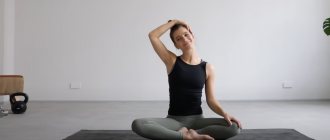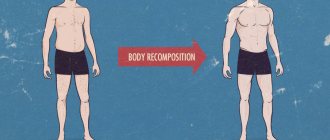Why sleep is so important
Sleep is the body’s time of restoration, the main source of health, beauty and vitality. Every person spends about 30% of their entire life on it.
During a night's rest, a number of important processes are launched in the body:
- restoration of cells damaged by stress, disease, injury, ultraviolet radiation, etc.;
- muscle fiber regeneration;
- replenishment of energy reserves depleted during wakefulness;
- increasing immune defense;
- preparing the heart and blood vessels for the next period of activity.
Too much sleep is bad for your health
Lack of sleep can be the starting point for the development of many serious diseases: diabetes, stroke, oncology, etc.
Excess sleep also has its negative consequences. It is dangerous to health, as is lack of sleep. Most likely, you will not feel alert and clear-headed if you sleep more than 10 hours. And this is just the tip of the iceberg.
Excessive sleep can become chronic - hypersomnia. With hypersomnia, a person constantly experiences drowsiness and delayed (long) awakening.
One of the common cases of excess sleep is metabolic syndrome. Most often it is characterized by metabolic disorders in the body. Excess weight, deposition of fat in the abdominal area, diabetes mellitus, and the development of cardiovascular diseases are quite good motivators for establishing a proper daily routine, taking into account healthy sleep.
What are the dangers of lack of sleep?
From chronic lack of sleep, a person quickly gets tired and loses the ability to concentrate on the task at hand. Gradually, stress develops into depression, which leads to obesity, diabetes, and stimulates the appearance of suicidal thoughts. Even a sleepless night can trigger metabolic processes that lead to hypertension and associated vision impairment.
A study conducted by scientists from the University of Hong Kong found that lack of sleep can have a negative impact on DNA structure. The subjects were volunteer doctors who regularly went on duty during the day and night. They took blood samples at the initial stage (after a good rest before starting their shift) and after finishing work.
A comparison of the results showed that those who worked in the dark had a higher degree of chemical DNA deformation than those who worked on the day shift. In addition, the former showed impaired cell repair function.
A person who regularly does not get enough sleep reacts sharply to external stimuli and feels pain more strongly. These conclusions were made by neuroscientists from the United States, who measured the level of sensitivity to heat and brain activity in 25 volunteers over several months. Participants who slept well showed higher tolerance to low indoor temperatures. After a sleepless night, similar conditions caused them obvious discomfort.
Disruptions in the neural mechanisms that control physiological responses to pain have also been documented. Thus, it was found that sleep is a natural analgesic.
Causes of insomnia
All processes in our body are under the strict control of the central nervous system (CNS). If any deviations from the norm occur, sleep is one of the first to suffer.
Many people experience insomnia before exams, important events or serious experiences. A person with a high level of anxiety is also a rare guest in the kingdom of Morpheus. Along with psychosocial stress, insomnia (insomnia) can occur due to:
- changes in climate zones,
- late dinner,
- diseases of various types,
- hormonal imbalances,
- neuralgia,
- alcoholism and smoking,
- physical discomfort (pain),
- age-related changes.
To determine the cause of insomnia and its treatment, consultation with a specialist is recommended.
Doctors believe that a person needs to sleep at least 5 hours per night. If you sleep less than this minimum for 3 days in a row, the body will experience the same effect as from one sleepless night. A team of scientists from Cedars-Sinai Medical Center in Los Angeles suggested that one night without sleep can cause health damage comparable to that of eating fast food for six months. At least this fact has been proven in dogs.
Healthy sleep: what is it like?
A healthy person's sleep consists of 2 phases:
- Slow. Sleep lasts about 90 minutes. It is characterized by decreased blood pressure, smooth, calm breathing, slow pupil movements, and low brain activity. At that time, the body rests and restores physical strength.
- Fast. Sleep lasts from 10 to 20 minutes. In this case, there is an increase in pressure and body temperature, increased heart rate, rapid movements of the pupils, and increased brain activity. This is the period of dreams.
Throughout the night, these phases repeatedly replace each other, allowing all organs, systems and the psyche to fully recover and prepare for a new day.
Healthy sleep is accompanied by deep diaphragmatic breathing. Its benefit is the active saturation of the blood with oxygen and the rapid delivery of nutrients to the cells. Hence the acceleration of metabolism, healing and rejuvenation of the body.
However, switching to diaphragmatic breathing will be impossible if a person goes to bed with a full stomach. Therefore, doctors recommend refraining from eating heavy and fatty foods 2-3 hours before going to bed.
The sleeping position is no less important. You can get the best sleep lying on your stomach. If dinner was late and plentiful, it is better to lie on your right side. This will allow food to move freely from the stomach to the intestines, and you will wake up in the morning feeling light. In addition, this position will allow you to forget about morning swelling on the face and early wrinkles on the neck. But sleeping on your back is considered the most beneficial. At first it may seem uncomfortable, but thoughts of a healthy stomach, a fresh complexion and a pain-free back will help you get used to this need.
If the rumbling in a hungry stomach still prevents you from falling asleep, a glass of warm herbal tea, milk with honey, or soy milk will help pacify it. A good alternative would be a quiet walk in the fresh air, which will help you take your mind off thoughts about food and set you up for a good rest.
It is better to ventilate the room in the evening, make the bed with fresh linen, and after a warm shower, put on soft pajamas that are appropriate for the season and do not restrict movement. The room should be dark; only in the complete absence of light does the human body produce melatonin, which is responsible for protecting against multiple sclerosis and depression.
Definition and rules of healthy sleep
From the first days of a little person’s existence, they begin to accustom him to a daily routine, developing such concepts as “day is the time of wakefulness” and “night” is “rest time.” These behavioral reactions and sleep norms are further reinforced for life.
But life is not a courier train moving exactly on schedule. Therefore, over time, the duration and norm of rest undergo changes. What should healthy sleep be like, how much sleep does a person need per day to feel rested, productive and energetic?
During sleep, many biochemical processes occur that have a beneficial effect on all human organs and systems, relieving the mental and physical fatigue accumulated during the day, and toning the body as a whole. Actions aimed at improving the quality of sleep are the key to its fullness and consistency.
How much sleep does an adult need to get enough sleep?
Scientists have found out how long a person's healthy sleep lasts - 7 hours 40 minutes. However, this figure is not a law, since each person is individual: 6 hours is enough for some, while others cannot recover in 9.
Moreover, if a person goes to bed later than 23.00, it does not matter how long he sleeps. His health will deteriorate due to chemical and hormonal processes occurring in the body and ensuring restoration of the nervous system only until 00.00. The optimal time for a night's rest is considered to be from 21.00 to 05.00.
How to determine your norm
To calculate your individual sleep norm, you need to consider the following nuances:
- Time to rest. By going to bed at 22.00 and getting up at 05.00, you can rest much better than falling asleep at 00.00 and waking up at 08.00.
- Physical activity. 1 hour spent in the gym adds 1.5 hours of full recovery.
- Age. Babies and old people need rest more than older people.
How to reduce sleep time
In order to increase your waking time per day, you need to properly organize your sleep. First, it’s worth setting a routine: bed no later than 9:30 p.m., wake-up no later than 4:30 a.m. After 10 days of strict adherence to the accepted routine, the body will adapt to it and will independently switch from a state of rest to work and back.
The more attentive a person is to the principles of organizing healthy sleep, the less time he will spend in bed. The body and psyche will recover faster, and the need for long-term rest will disappear.
Deep sleep concept
There are two main stages of sleep:
- slow wave sleep (napping, light sleep, deep sleep);
- REM sleep (activation of all processes in the body before waking up).
Deep sleep is most important because it is during this phase that the body recovers and stores energy.
Deep dream
- the phase of sleep in which the heartbeat and breathing slow down. Your body completely relaxes, and you hardly move. This is the most important sleep cycle. If you find that you wake up groggy even after spending seven or eight hours in bed, your sleep may not be deep enough.
The duration of deep sleep varies throughout life. Babies and toddlers need much more sleep than older children. By age 5, most children have typical adult sleep patterns.
Variability of sleep depending on age and gender
It is impossible to accurately answer the question of how long healthy sleep should last: the rest needs of each person are individual and depend on gender and age. Generally accepted standards for children, adolescents and adults are shown in the table.
| Age category | Duration of sleep, hours |
| Newborns (0-3 months) | 15 |
| Infants (4-11 months) | 14 |
| Children (1-3 years) | 12 |
| Preschoolers (3-5 years old) | 11,5 |
| Junior schoolchildren (6-13 years old) | 10 |
| Teenagers (14-17 years old) | 9 |
| Boys and girls (18-25 years old) | 8 |
| Mature people (26-64 years old) | 8 |
| Elderly (65 years and older) | 10 |
Research has shown that women's need for rest is higher than men's. During pregnancy and lactation, when rest helps increase milk supply, the mother needs to be given the opportunity to fully restore her physical and emotional strength.
Is it good to sleep during the day?
Everyone who went to kindergarten remembers how they wanted to jump, run, play - do anything but not sleep after lunch. However, the teachers categorically insisted and sent all the children to bed. Nowadays, taking a nap in the afternoon is the dream of many adults.
Let's look at how daytime sleep affects the body. It may turn out that the formidable teachers from our memories were right.
Experts in the field of studying the benefits of sleep have proven that an afternoon siesta has a positive effect on our body in psychological and physical aspects. NASA pilots acted as test subjects. The results of the study showed that a 26-minute siesta in pilots improved productivity by 34% and alertness by 54%.
Daytime sleep duration:
- from 2 to 5 minutes - micro-nap. Effectively combats drowsiness;
- from 5 to 20 minutes - mini-nap. Increases alertness, endurance, productivity;
- 20 minutes is a real good sleep. Has the benefits of micro- and mini-naps, improves muscle memory and “cleanses” the brain of unnecessary information;
It is believed that a midday nap for 20 minutes is optimal and beneficial for a healthy person, as it serves as a good prevention of physical and mental fatigue.
A siesta lasting more than 40 minutes can do more harm than help in overcoming drowsiness. A team of doctors from the American College of Cardiology found that if you sleep more than 40 minutes during the day, metabolic disorders (metabolic syndrome) may occur.
For people suffering from insomnia and who are deeply depressed, it is best to give up daytime sleep: in this state it will be more difficult to control yourself and you may sleep for several hours.
When to go to bed to get enough sleep
To wake up fully rested, you need to go to bed no later than 10 p.m. If you go to bed later, the body will not have time to produce hormones and other chemicals necessary to protect the immune system and restore nerve fibers and muscles.
Is it good to sleep during the day?
Today, sleep specialists do not have reliable data that daytime sleep increases life expectancy or protects against chronic diseases. However, it has been proven that thanks to short-term rest during daylight hours, a person feels a surge of vitality, efficiency and an optimistic mood.
The structure of daytime sleep is no different from nighttime sleep. It consists of two alternating phases, the duration of which is slightly shorter than at night. In addition, melatonin production is blocked during the day.
The study found that people who fall asleep during a period of decreased daytime activity wake up groggy, with a “heavy” head and even more tired than before. And falling asleep for a short time after sunset disrupts the biological rhythms of melatonin production.
How to organize healthy sleep
The principles of organizing normal sleep are simple and accessible to everyone:
- Have dinner at least 2-3 hours before going to bed.
- 1 hour before bedtime, turn off the computer and TV.
- Take a warm, relaxing shower.
- Ventilate the room.
- Darken the windows, do not turn on the night light. Only in the dark does the body synthesize melatonin, which is responsible for maintaining immunity and mental health.
- Go to bed at 22.00, wake up at 05.00.
- Sleep on your back.
- Use an orthopedic pillow with a height of 10-14 cm and a width corresponding to the width of the shoulders.
- After waking up, give your body a couple of minutes to adapt, and then get up, without allowing yourself to fall back into sleep.
Sleep disorders
Some people suffer from various sleep-related illnesses.
We are talking about the following pathologies:
- Insomnia (insomnia), in which a person cannot fall asleep for a long time or often wakes up.
- Hypersomnia, which is excessive sleepiness.
- Parasomnia. The main signs are sleepwalking, nocturnal enuresis, fears and nightmares, and seizures during sleep.
- Psychosomatic insomnia. It consists of situational insomnia caused by emotional stress. The duration of symptoms does not exceed 3 weeks.
- Post-somnia disorder, in which a person who wakes up feels tired, weak, and lacks strength.
- Sleep apnea is a breathing disorder during sleep.
- Bruxism. The symptom is teeth grinding caused by spasms of the masticatory muscles during sleep.
Most of these pathologies are within the competence of neurologists and somnologists. In advanced conditions, they can lead to the development of cardiovascular, endocrine, immune and mental disorders.
How to get enough sleep in a short time
There are several techniques that allow you to dramatically reduce the duration of sleep and restore strength in a short time.
Productive sleep technique
Recovery of the nervous system occurs only during the fast phase, the duration of which does not exceed 20 minutes. During 7-8 hours of continuous sleep, a person plunges into it only 2 times. But this allows you to feel cheerful, active and full of energy in the morning. If you wake a person in the slow phase of sleep, he will feel tired and apathetic throughout the day.
Thus, it is not the time spent in sleep that is important, but the moment of awakening. The technique of productive sleep is to increase the efficiency of the fast phase.
You can do this in several ways:
- “Siesta” is a long rest at night and a short rest (about 20 minutes) during the day. Reduces the duration of night sleep by 2 hours. When going to bed during the day, you need to set the alarm for 20 minutes - this will allow you to go through only the fast phase. Otherwise, the result will be the opposite: loss of strength, irritability and apathy.
- “Staircase” - consists of using several 20-minute sessions of daytime sleep, each of which reduces the duration of night rest by 1.5 hours.
- “Superman” - during the day you need to organize 6 sleep sessions of 20 minutes each.
REM sleep technique
The REM sleep technique was invented in Japan. It is based on several rules that can reduce the time spent in bed to 4-5 hours.
Its principles are as follows:
- Don't have dinner before bed.
- Abstract yourself from problems and worries.
- Fill the pillow with aromatic herbs.
- Before going to bed, take a warm shower. Imagine how water takes away fatigue, irritation and resentment.
- Go to bed before midnight.
- Choose the right blanket - it should not be too thin or heavy.
- Sleep on your back.
Special Forces Methodology
Having mastered the special forces technique, you can learn to fall asleep in any conditions in 2 minutes.
Her rules:
- Lean back in a chair or lie down on the bed. Legs should be parallel.
- Cross your arms over your chest. Place your chin on your chest. Relax your jaw and let it drop freely.
- Breathing should be deep and calm.
- Alternately relax the muscles of the head, tongue, lips, eyes.
- With each exhalation, release tension and unnecessary thoughts.
- Relax your arms and legs; they should resemble “dead weight.”
- Mentally imagine virgin nature, calming the mind.
How to learn to wake up early?
It is believed that a person has high performance in the early morning, provided that he goes through all phases of sleep during the night. Some people spend their mornings exercising or performing difficult tasks at work.
Here are some tips to help you wake up faster:
- you should go to bed on time and spend the required amount of time sleeping;
- it is easier to wake up in a room with an optimal air temperature - no more than 23 °C;
- The alarm clock should not be at hand. Keep him a few steps away from you;
- after you get up to turn off the alarm, go to the shower;
- turn on your favorite music;
- drink your favorite invigorating drink;
- Wake up every day at the same time.
By following these rules, you can develop the habit of waking up early in two weeks.











